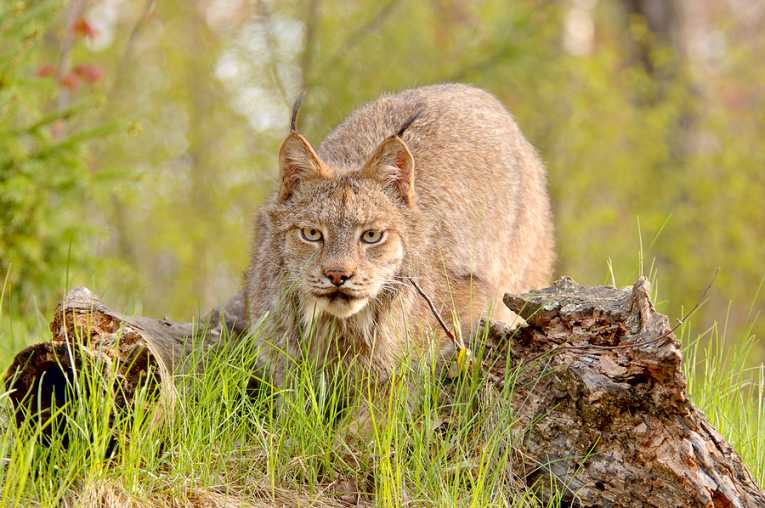The complexity of the ecosystems which support the world's wildlife is illustrated in a new study which argues that the revival of wolf populations will help bring the threatened Canada lynx back from the brink.
Researchers from Oregon State University (OSU) published their findings in the Wildlife Society Bulletin arguing that as coyotes have benefited from the disappearance of wolves they have put extra pressure on the snowshoe hares on which the lynxes survive.
"The increase in mesopredators such as coyotes is a serious issue; their populations are now much higher than they used to be when wolves were common in most areas of the United States," said William Ripple, a professor in the Department of Forest Ecosystems and Society at OSU."Before they were largely extirpated, wolves used to kill coyotes and also disrupt their behaviour through what we call the 'ecology of fear,'" Ripple said. "Coyotes have a flexible, wide-ranging diet, but they really prefer rabbits and hares, and they may also be killing lynx directly."
The Canada lynx was listed as a threatened species in 2000 after decades of decline cause by loss of food and changes to its habitat - including the possible effects of climate change on its snowy home.
As top predators wolves keep grazing animals in check, protecting forests. Similar effects have been seen in other environments too as mesopredators grow in numbers and disrupt ecosystems and attack domesticated and farm animals, causing the expenditure of hundreds of millions of dollars in an effort to protect them.
"In the absence of wolves, coyote densities and distributions generally expanded in the U.S., into the Midwest, to the northeast as far as Newfoundland, and as far northwest as Alaska," the researchers wrote in their report.
In Yellowstone National Park, where wolves have returned, coyote populations were cut by half.
The scientists argue for more work into how wolves and other top predators are managed.
Top Image Credit: Canada Lynx Stalking © Carolina Smith










